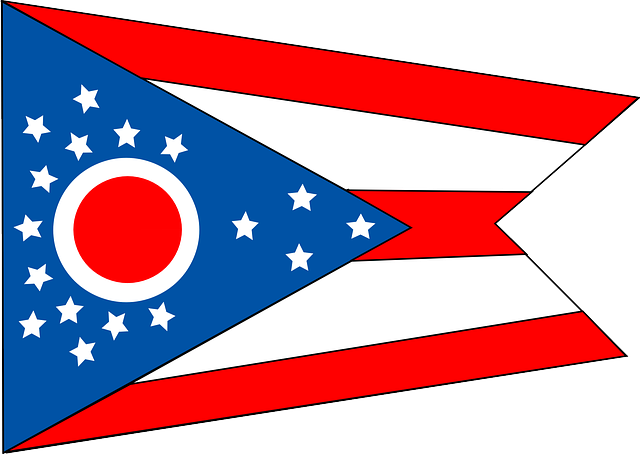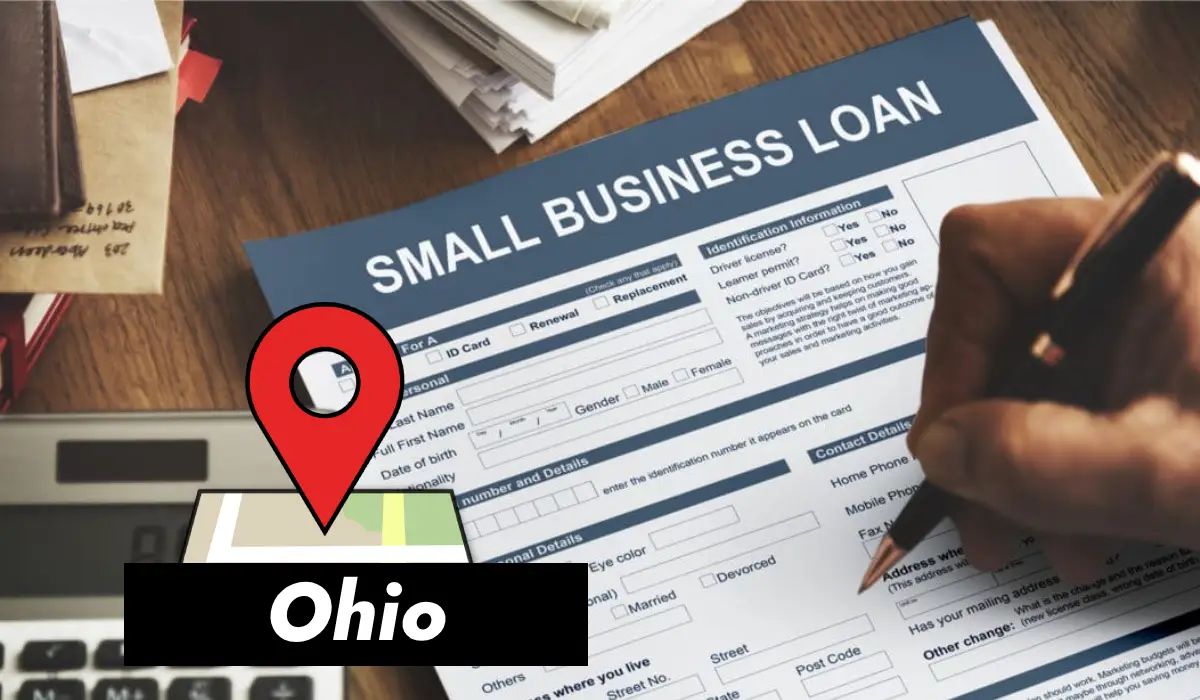Starting a small business in Ohio can be challenging but possible with the proper funding. Ohio offers many options for small business loans to help entrepreneurs fund their dreams. Finding the right loan is critical to launching, growing, or running daily operations. So, let’s get into what you need to know about loans for small businesses in Ohio, the programs, and how to qualify.
What are Ohio Small Business Loans?
Loans for small businesses in Ohio provide funding to cover operational costs, equipment purchases, and expansion of facilities. Traditional and online lenders and the Ohio Development Services Agency offer these loans. The goal is to help small businesses compete, grow, and create jobs in the state.

- Amount = $5,000 to $500,000
- Loan Term = 4 to 24 months
- Interest Rate = 1.11%
4.8
editorial team. We score based on factors
that are helpful for consumers, such as
how it affects credit scores, the rates and
fees charged, the customer experience,
and responsible lending practices.
- Min. Amount = $10,000
- Max Amount = $500,000
- APR = Factor rate starting at 1.11%
4.8
editorial team. We score based on factors
that are helpful for consumers, such as
how it affects credit scores, the rates and
fees charged, the customer experience,
and responsible lending practices.
Best for large business loans

- Loan Amount = $25,000 - $3,000,000
- $10,000 in Monthly Rev
- No minimum credit score requirement
4.9
editorial team. We score based on factors
that are helpful for consumers, such as
how it affects credit scores, the rates and
fees charged, the customer experience,
and responsible lending practices.
Best for large business loans

- Min Amount = $5,000 - 1,500,000
- APR range Not disclosed
- Minimum Credit Score 570
4.7
editorial team. We score based on factors
that are helpful for consumers, such as
how it affects credit scores, the rates and
fees charged, the customer experience,
and responsible lending practices.
Best for Small business loans

- Min Credit Score = 620
- Loan Amount = $10K-$5M
- Term = 6 months - 10 years
- APR = Variable
4.8
editorial team. We score based on factors
that are helpful for consumers, such as
how it affects credit scores, the rates and
fees charged, the customer experience,
and responsible lending practices.

- Check Your Eligibility
- Get $10K to $2M
- 24/7 Support
4.8
editorial team. We score based on factors
that are helpful for consumers, such as
how it affects credit scores, the rates and
fees charged, the customer experience,
and responsible lending practices.

- Amount = $10,000 to $1,000,000
- Factor Rate = Starting at 1.24
- Term = 2 to 12 months
4.7
editorial team. We score based on factors
that are helpful for consumers, such as
how it affects credit scores, the rates and
fees charged, the customer experience,
and responsible lending practices.

Related: Business Loans in USA – Follow to get one with best rates
Why Ohio is a Great Place for Small Businesses
Ohio has a strong economy. The state supports many sectors with its many industries, from manufacturing to agriculture. Many lenders offer Ohio small business loans to help entrepreneurs, including women-owned businesses, get funding for growth and expansion. Many options are available, whether it’s working capital or buying new equipment.
Ohio Small Business Loans
When it comes to small business financing in Ohio, there are several types of loans to consider. Here’s a breakdown:
1. SBA Loans
The Small Business Administration (SBA) is a federal agency that guarantees loans to lenders, making it easier for small business owners to get funding. SBA loans are a great option because they often have lower interest rates and better loan terms.
- SBA Guaranteed Loans: These loans are backed by the federal government, reducing the lender’s risk.
- SBA Preferred Lender: In Ohio, some lenders are SBA-preferred lenders, which means they can process applications faster.
- SBA Loan Programs: 7(a), 504, and SBA microloans are available with different options based on the business needs.

Related: How to Get a $ 100k Business Loan
2. Business Term Loans
A term loan is a simple loan where a business owner borrows a lump sum and pays it back over a set period with interest. These are for long-term investments like buying fixed assets or expanding operations.
3. Equipment Financing
For Ohio businesses in manufacturing or agriculture equipment, financing is crucial. This type of loan helps you buy new equipment without dipping into your cash reserves. It’s beneficial for businesses that rely heavily on equipment to operate.
4. Commercial Real Estate Loans
Commercial real estate loans are the way to go if you want to buy or renovate property. This type of business loan is long-term, with competitive interest rates to help small businesses invest in real estate.
How to Apply for Ohio Small Business Loans
Applying for a small business loan can seem overwhelming, but it’s doable if you break it down into steps. Here’s how:
1. Get Your Business Plan
It would be best to have a business plan for any loan application. This document shows lenders you’ve thought through your business goals, strategy, and financial projections. It should include market analysis, revenue projections, and how you plan to use the loan.
2. Review Your Business Financials
Lenders will look at your business financial statements (profit and loss statements) to see how healthy your business is. These documents are vital to proving you can repay the loan.
3. Know the Loan Requirements
Loans have different eligibility criteria. For example, SBA loans may require a minimum credit score, and some lenders may ask for a personal guarantee to reduce their risk. Make sure you meet these requirements before applying.
4. Get Your Documents Ready
You’ll need to get your documents in order: financial projections, business financial statements, and tax returns. These documents will help the lender evaluate your financial stability and ability to repay the loan.
Related: Startup Business Loans for Bad Credit Guaranteed
Ohio Small Business Lenders
Now that you know the types of loans, where can you apply for them? Ohio has many traditional and online lenders that offer competitive rates and terms for small businesses.
1. Huntington National Bank
One of the biggest lenders in Ohio is Huntington National Bank. They offer business loans, equipment financing, and lines of credit. Their customer service and variety of loan products make them a top pick for Ohio small businesses.
2. Telhio Credit Union
Telhio Credit Union is another top lender offering loan products to fit Ohio’s entrepreneurs. From working capital loans to real estate loans, they have options for all types of businesses, making them a great alternative to traditional banks.
3. Ohio Development Services Agency
The Ohio Development Services Agency helps small businesses through various loan programs to promote business growth in Ohio. They offer low-interest loans, grants, and financial assistance to help companies to succeed.

Related: Guide to Get USAA Small Business Loans USA
What to Consider When Choosing a Business Loan in Ohio
Choosing the right loan is critical to your business. Here are some things to think about:
1. Interest Rates
Interest rates vary by lender and loan type. Lower interest rates are great, but weigh other factors like repayment terms and fees.
2. Loan Amounts and Terms
The amount you borrow and the time you have to repay the loan (loan terms) will impact your business cash flow. Always choose a loan that fits your business growth goals and allows you to repay it on time.
3. Flexibility and Overhead Requirements
Some lenders offer loan options that adjust based on your cash flow. These can be helpful for businesses that have seasonal fluctuations or unpredictable revenue.
4. Repayment Plans
Check if the loan has a reasonable repayment schedule. Some loans offer flexible repayment options like interest-only payments in the first few months.
Ohio Small Business Resources
Ohio has many resources for small businesses, so they have what they need to succeed.
1. Ohio Small Business Development Centers
Ohio’s Small Business Development Centers (SBDCs) offer free consulting services to entrepreneurs at all stages. Whether you need help with market research or loan applications, the SBDCs are a great resource.
2. Ohio Treasurer’s Office
The Ohio Treasurer’s Office has programs like the Small Business Linked Deposit Program, which offers lower interest rates on loans to small businesses to promote business growth in the state.
Women-Owned Business Loans
Ohio supports women-owned businesses with various financial assistance programs. Women entrepreneurs can apply for specific small business loans that cater to their needs, often with lower interest rates or better loan terms. These loans aim to promote gender equality in business and empower women to start and grow their businesses. These loans provide valuable support, whether equipment purchases, working capital, or expanding their businesses.


- Amount = $5,000 to $500,000
- Loan Term = 4 to 24 months
- Interest Rate = 1.11%
4.8
editorial team. We score based on factors
that are helpful for consumers, such as
how it affects credit scores, the rates and
fees charged, the customer experience,
and responsible lending practices.
- Min. Amount = $10,000
- Max Amount = $500,000
- APR = Factor rate starting at 1.11%
4.8
editorial team. We score based on factors
that are helpful for consumers, such as
how it affects credit scores, the rates and
fees charged, the customer experience,
and responsible lending practices.
Best for large business loans

- Loan Amount = $25,000 - $3,000,000
- $10,000 in Monthly Rev
- No minimum credit score requirement
4.9
editorial team. We score based on factors
that are helpful for consumers, such as
how it affects credit scores, the rates and
fees charged, the customer experience,
and responsible lending practices.
Best for large business loans

- Min Amount = $5,000 - 1,500,000
- APR range Not disclosed
- Minimum Credit Score 570
4.7
editorial team. We score based on factors
that are helpful for consumers, such as
how it affects credit scores, the rates and
fees charged, the customer experience,
and responsible lending practices.
Best for Small business loans

- Min Credit Score = 620
- Loan Amount = $10K-$5M
- Term = 6 months - 10 years
- APR = Variable
4.8
editorial team. We score based on factors
that are helpful for consumers, such as
how it affects credit scores, the rates and
fees charged, the customer experience,
and responsible lending practices.

- Check Your Eligibility
- Get $10K to $2M
- 24/7 Support
4.8
editorial team. We score based on factors
that are helpful for consumers, such as
how it affects credit scores, the rates and
fees charged, the customer experience,
and responsible lending practices.

- Amount = $10,000 to $1,000,000
- Factor Rate = Starting at 1.24
- Term = 2 to 12 months
4.7
editorial team. We score based on factors
that are helpful for consumers, such as
how it affects credit scores, the rates and
fees charged, the customer experience,
and responsible lending practices.
Related: What are Home Loans? Their Important Features and Benefits
Real Estate Loans for Small Businesses in Ohio
Purchasing or improving business property is a significant investment, and many small businesses need extra help. Commercial real estate loans allow Ohio business owners to buy land or buildings for their businesses. They also offer the chance to make renovations or expand existing spaces.
Real estate loans typically have longer repayment terms and may offer lower fixed interest rates, making them ideal for long-term business projects. Whether you want to open a second location or improve your current space, these loans can provide the necessary funds to make it happen.
Loans for Startups in Ohio
Starting a new business can be expensive, and most entrepreneurs need financial help. Many Ohio small business loans are available for startup businesses. These loans help cover the initial business costs, such as renting office space, buying inventory, and hiring employees.
For startups, alternative lenders and the Ohio Development Services Agency offer specific loans catering to new business owners’ needs. These loans often come with unique terms, such as deferred payments, giving the business time to grow before starting repayment.
Business Loans with Low Credit in Ohio
Some entrepreneurs may worry about qualifying for a loan because of bad credit. However, Ohio has options for businesses with low or bad credit scores. Private lenders and alternative financing solutions can provide loan options to help you get the funds you need, although they may come with higher interest rates.
Improving your credit score can help you qualify for better terms. However, if you need immediate funds, lenders may still be willing to work with you by considering other factors like your cash flow and business potential.
Ohio Small Business Loan Programs for Minority-Owned Businesses
Ohio offers several loan programs aimed explicitly at minority-owned businesses. These programs provide funding to help underrepresented groups succeed in the business world. Minority-owned companies can benefit from lower interest rates, better loan terms, and sometimes even grants like women-owned businesses.
The Ohio Development Services Agency works to provide financial support and resources to help minority businesses grow and contribute to Ohio’s economy. This can be a great way to get the necessary support to build a successful business in the state.
Fixed Interest Rate vs. Variable Interest Rate Loans
When considering a loan for your business, you’ll often hear the terms “fixed” and “variable” interest rates. Fixed interest rates remain the same throughout the loan term, making them predictable and easy to plan for in your budget. On the other hand, variable rates can change over time, depending on market conditions.
For business owners who prefer stability, fixed-rate loans offer peace of mind. However, if you’re comfortable with some risk and want to take advantage of potentially lower rates in the future, a variable-rate loan might be a good option.
Related: How to Get a Loan to Buy Business Inventory?
Importance of Cash Flow in Loan Applications
When applying for a business loan, lenders often look at your cash flow. Cash flow refers to the money coming into and going out of your business. A robust and positive cash flow shows that your business is making enough money to cover its expenses, which makes you more likely to get approved for a loan.
Maintaining healthy cash flow is essential for managing expenses and increasing revenue. A lender will want to see that your business has the financial health to repay the loan on time.
Eligibility Criteria for Business Loans in Ohio
Every loan comes with its eligibility criteria. Most lenders will look at your credit score, revenue, time in business, and financial statements before approving a loan. Some loans may also require a personal guarantee, which means you’re responsible for repaying the loan if your business can’t.
Lenders might look at your business plan and financial projections for newer businesses to see how you plan to grow. If you don’t meet the eligibility criteria for one loan, there may still be other loan options that are right for you.
How to Compare Small Business Loan Options
With so many loan options available in Ohio, comparing them before deciding is essential. Look at interest rates, repayment terms, fees, and how much you can borrow. Some loans come with competitive interest rates, while others may offer more flexible repayment terms. It’s also helpful to work with a loan officer who can explain the pros and cons of different options.
If you’re unsure which loan is best for you, consider meeting with an advisor from one of Ohio’s Small Business Development Centers. They can help you understand your options and guide you through the process.
Additional Resources for Ohio Small Businesses
In addition to loans, Ohio offers many other resources for small businesses. Programs like the Ohio Department of Development provide access to educational workshops, networking events, and mentoring programs. These resources can help you grow your business by providing the skills and knowledge needed to succeed.
The Ohio Secretary of State also offers information about registering your business, filing important documents, and complying with Ohio’s regulations. These resources ensure that your business runs smoothly and meets all legal requirements.

Frequently Asked Questions
What credit score do I need to get a small business loan?
Most lenders prefer a credit score of at least 650 for a traditional small business loan. However, some lenders may accept lower scores, especially if you have strong business financials or collateral. It depends on the lender and the type of loan you’re applying for. The minimum credit score required for SBA loans is usually around 620–680.
Is it hard to get a small business loan?
Getting a small business loan can be challenging, especially if your business is new or if you have a low credit score. Before approving a loan, lenders typically want to see a strong cash flow, solid business financial statements, and a good business plan. However, many alternative lenders and SBA-backed loans offer options for those who may find traditional loans more challenging to secure.
What is the most accessible SBA loan to get approved for?
The SBA 7(a) loan is considered one of the easier SBA loans to get approved for, especially for those looking for working capital or to start a new business. SBA microloans are also easier to qualify for if you need smaller funding. These loans have lower eligibility requirements and offer flexible repayment terms.
What makes you eligible for a small business loan?
To be eligible for a small business loan, lenders usually require you to meet specific criteria, such as having a solid credit score, a well-prepared business plan, and consistent cash flow. Your business’s age, industry, and revenue will also determine eligibility. Many lenders will also ask for financial statements like profit and loss and may require collateral or a personal guarantee, depending on the loan.

- Amount = $5,000 to $500,000
- Loan Term = 4 to 24 months
- Interest Rate = 1.11%
4.8
editorial team. We score based on factors
that are helpful for consumers, such as
how it affects credit scores, the rates and
fees charged, the customer experience,
and responsible lending practices.
- Min. Amount = $10,000
- Max Amount = $500,000
- APR = Factor rate starting at 1.11%
4.8
editorial team. We score based on factors
that are helpful for consumers, such as
how it affects credit scores, the rates and
fees charged, the customer experience,
and responsible lending practices.
Best for large business loans

- Loan Amount = $25,000 - $3,000,000
- $10,000 in Monthly Rev
- No minimum credit score requirement
4.9
editorial team. We score based on factors
that are helpful for consumers, such as
how it affects credit scores, the rates and
fees charged, the customer experience,
and responsible lending practices.
Best for large business loans

- Min Amount = $5,000 - 1,500,000
- APR range Not disclosed
- Minimum Credit Score 570
4.7
editorial team. We score based on factors
that are helpful for consumers, such as
how it affects credit scores, the rates and
fees charged, the customer experience,
and responsible lending practices.
Best for Small business loans

- Min Credit Score = 620
- Loan Amount = $10K-$5M
- Term = 6 months - 10 years
- APR = Variable
4.8
editorial team. We score based on factors
that are helpful for consumers, such as
how it affects credit scores, the rates and
fees charged, the customer experience,
and responsible lending practices.

- Check Your Eligibility
- Get $10K to $2M
- 24/7 Support
4.8
editorial team. We score based on factors
that are helpful for consumers, such as
how it affects credit scores, the rates and
fees charged, the customer experience,
and responsible lending practices.

- Amount = $10,000 to $1,000,000
- Factor Rate = Starting at 1.24
- Term = 2 to 12 months
4.7
editorial team. We score based on factors
that are helpful for consumers, such as
how it affects credit scores, the rates and
fees charged, the customer experience,
and responsible lending practices.


 Read More
Read More 





6 Responses